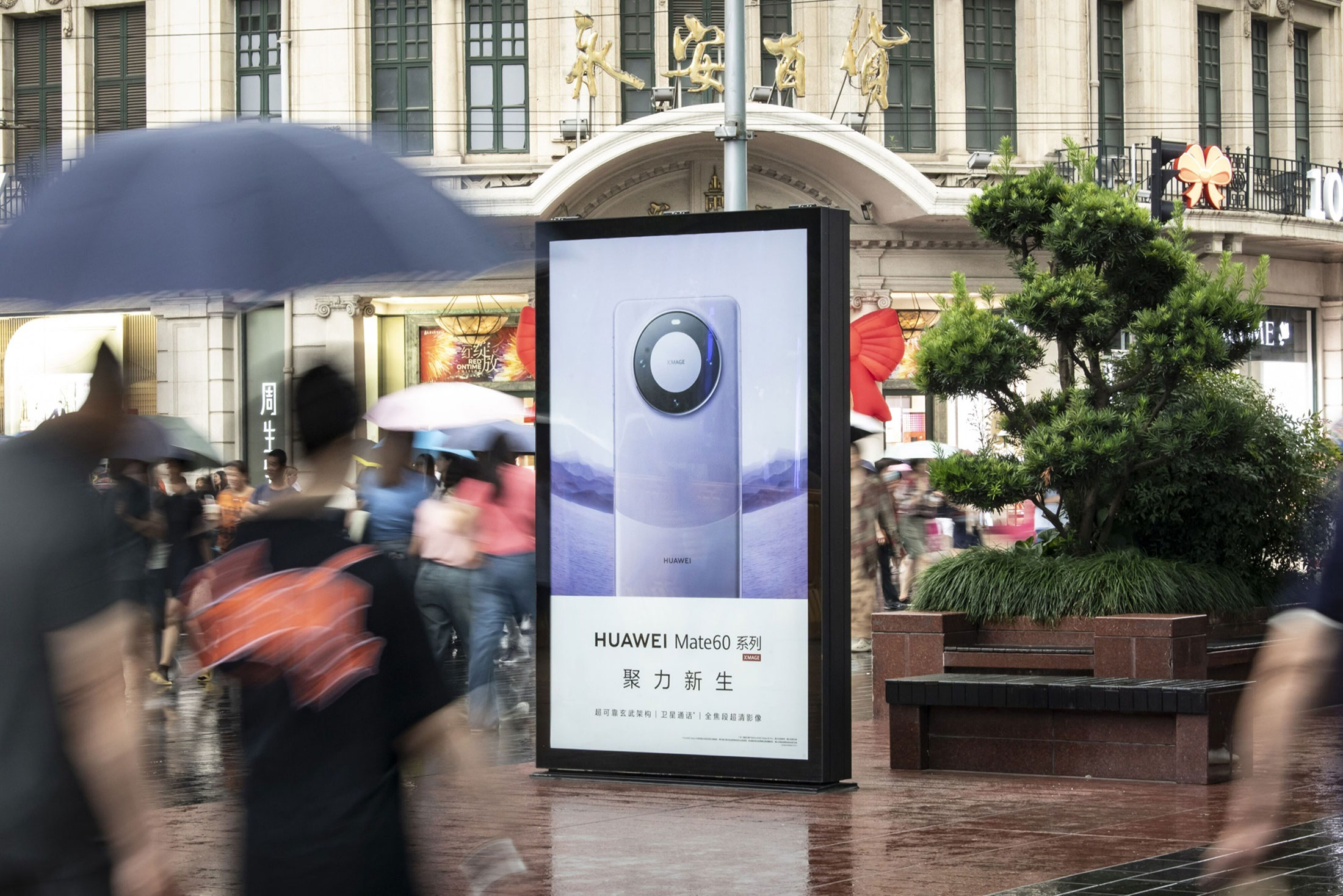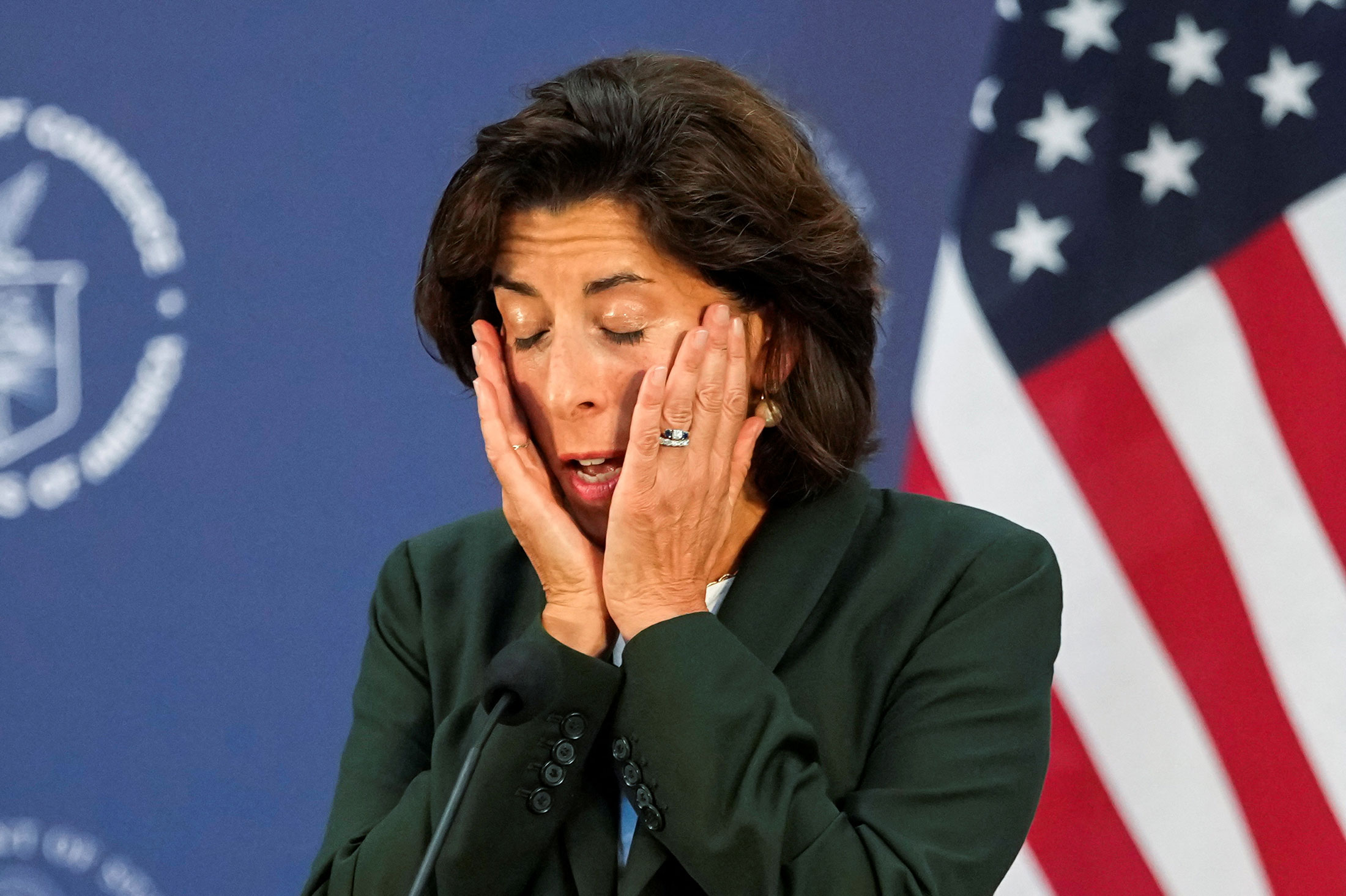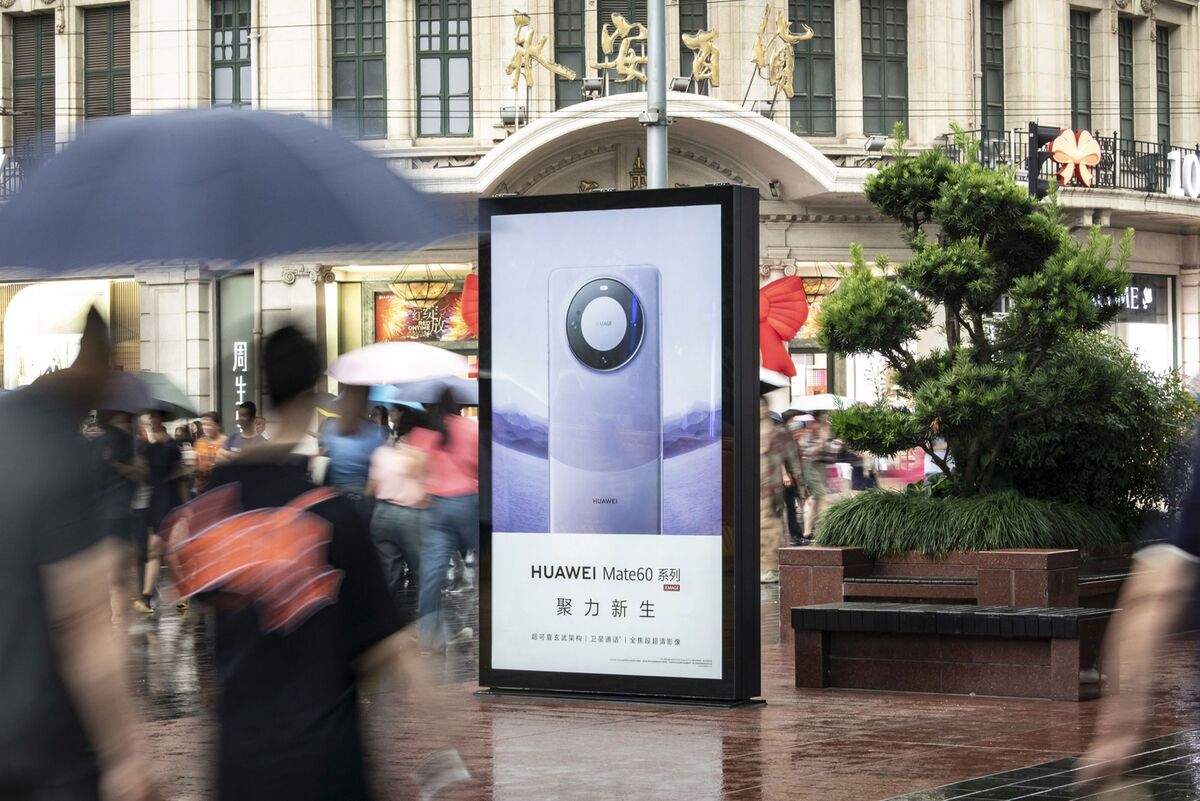beijingwalker
ELITE MEMBER

- Joined
- Nov 4, 2011
- Messages
- 65,195
- Reaction score
- -55
- Country
- Location
Are US Tech Sanctions on China Backfiring? US hopes that China will simply accept second-class status are fading

An ad for the Huawei’s Mate 60 in Shanghai.
Photographer: Qilai Shen/Bloomberg
By Karl Maier
2023年9月29日 at GMT+8 17:58
The sophisticated chip found in the Chinese company Huawei’s new phone has provoked much hand-wringing in Washington over a central concern: US sanctions may not just be insufficient; they may be backfiring.
It’s a legitimate worry, but surely no one expected Beijing would halt its drive to scale the heights of technological progress in response to Washington’s efforts.
In 2019, when then-President Donald Trump initially targeted Huawei, the issue wasn’t so much US-China competition as concerns that the company’s global telecommunications networks would aid Beijing’s espionage efforts.
Under President Joe Biden, the policy has morphed into an all-encompassing effort to knee-cap China’s development of everything from sophisticated chips to artificial intelligence and supercomputing, in the name of hindering its military’s advance.
Understandably, President Xi Jinping’s government objects, while some key US allies doubt the wisdom of moves that serve to hold back the world’s second-largest economy, even if the US denies that is its intention.
There’s already been blowback: China recently barred exports of two critical minerals, and restricted the use of Apple iPhones at state-backed companies and agencies — a move the US called “aggressive and inappropriate.”
While the US is cracking down on China, its own big tech is facing scrutiny at home and in the European Union too. French antitrust enforcers raided the offices of a business that the Wall Street Journal identified as AI-chip giant Nvidia on suspicion of “anticompetitive practices.”
Whether Beijing can gain ground in the chip race remains unclear: China’s economy is struggling and it lacks access to the most advanced chipmaking machines. While nationalists crowed over the rollout of Huawei’s Mate 60 Pro, its chip is three generations behind those used in the latest iPhones.
But one thing is clear: In a global technology war that’s turning increasingly nasty, US hopes that China will simply accept second-class status are fading.

US Commerce Secretary Gina Raimondo in Shanghai on Aug. 30.Photographer: Aly Song/Reuters/Redux

Are US Tech Sanctions on China Backfiring?
Welcome to Balance of Power, bringing you the latest in global politics. If you haven’t yet, sign up here.
